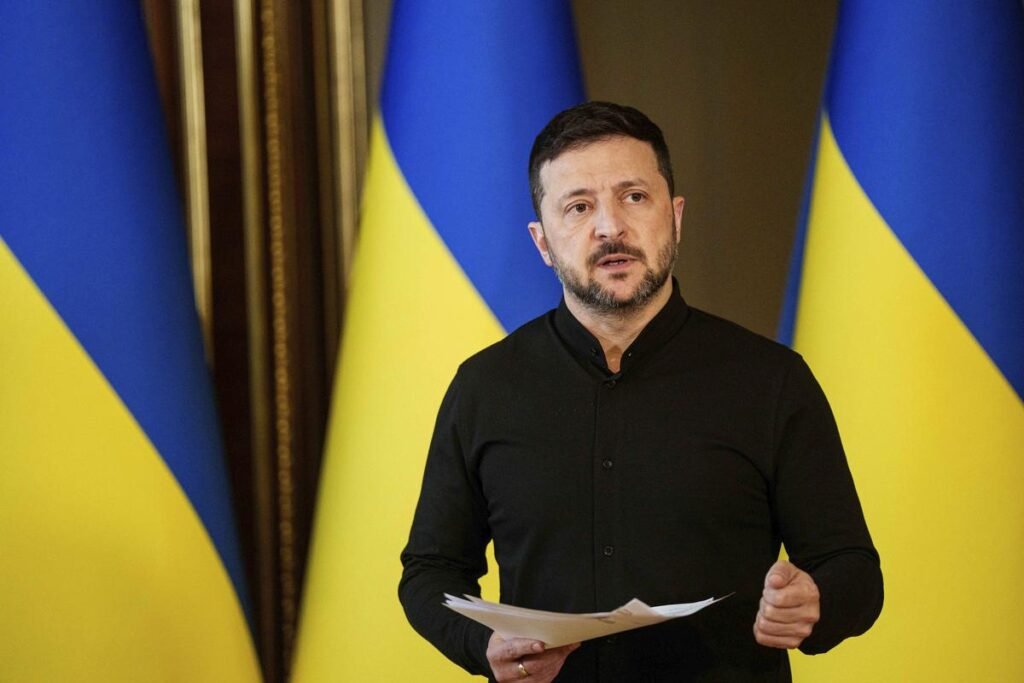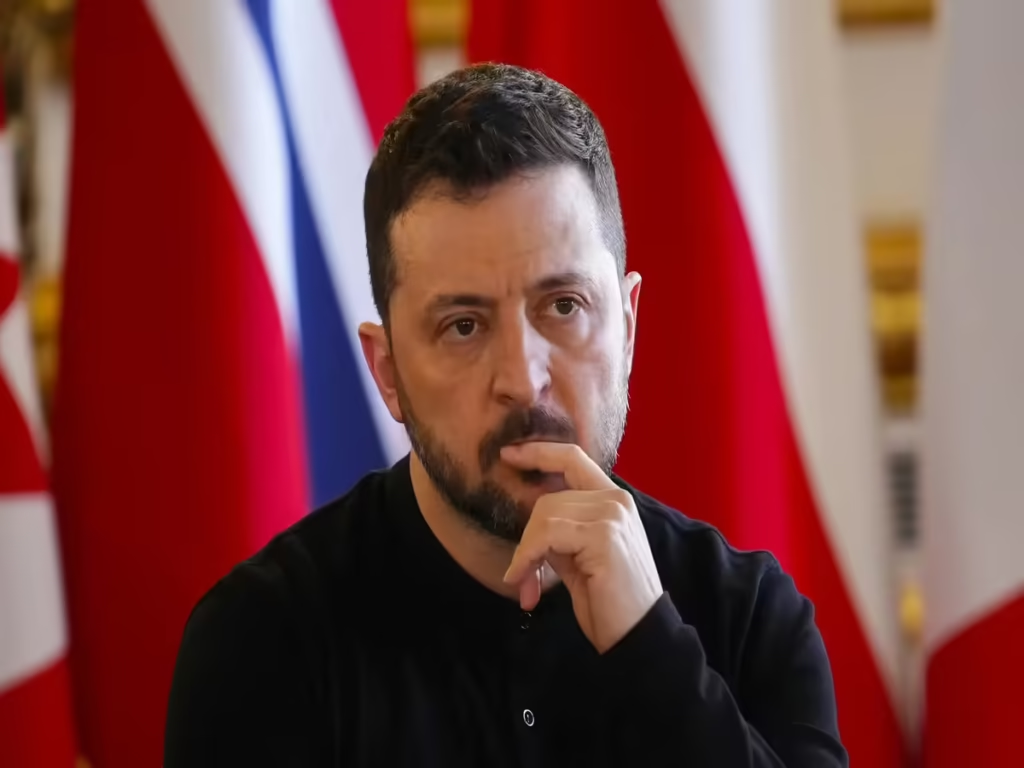Washington, D.C. — Ukrainian President Volodymyr Zelenskyy met with top executives from major American businesses this week during a diplomatic visit to the United States. His goal: strengthen Ukraine’s economic ties with the U.S., attract investment for reconstruction, and reinforce political and corporate partnerships.
The meeting, which included representatives from technology, energy, defense, and infrastructure sectors, was held under strict security and closed-door protocols. However, official summaries and participant comments provided insight into the clear message Zelenskyy delivered: Ukraine is open for business—and it needs U.S. support more than ever.
Here are 5 key takeaways from the important dialogue and what it could mean for the future of U.S.–Ukraine relations.
1. Ukraine Seeks Long-Term Business Partnerships, Not Just Aid
While military support has been a top priority since the Russian invasion in 2022, President Zelenskyy emphasized the need for economic collaboration as equally vital to Ukraine’s survival.
“Ukraine does not only need weapons. We need jobs, factories, and investments,” Zelenskyy reportedly said during the meeting. He urged American businesses to look at Ukraine as a land of opportunity rather than just a zone of conflict.
He offered assurances that legal reforms and transparency efforts are in place to protect foreign investors, especially those who want to contribute to the post-war rebuilding of Ukraine’s economy.
2. Key Industries Identified for American Involvement
During the session, Zelenskyy highlighted five critical sectors where he believes American companies can play a strong role:
- Energy (especially renewables and rebuilding power grids)
- Agriculture and food processing
- Technology and cybersecurity
- Defense manufacturing
- Construction and infrastructure

Several companies reportedly expressed interest in exploring joint ventures and public-private partnerships once conditions stabilize further.
“American innovation can help power Ukraine’s recovery,” Zelenskyy noted. “We welcome partners who believe in freedom and future growth.”
3. A Clear Signal to the U.S. Government
Though the meeting was with business leaders, Zelenskyy’s message also extended to U.S. policymakers. By involving the private sector, the Ukrainian president is signaling that economic recovery must go hand-in-hand with political and military support.
This approach also strengthens his broader goal: keeping Ukraine top-of-mind in Washington, especially during a time when global focus has shifted to other pressing matters like China, inflation, and the upcoming U.S. presidential election.
According to a source close to the Ukrainian delegation, Zelenskyy hopes that business interest in Ukraine will increase pressure on U.S. lawmakers to maintain funding and diplomatic backing for Kyiv in 2025 and beyond.
4. A Bid for American Confidence in Ukraine’s Future
Zelenskyy acknowledged the risks of doing business in a country still at war. However, he positioned these risks as temporary, while the potential for growth and impact is long-term.
He presented data showing that Ukraine’s economy, though damaged, is beginning to stabilize. Sectors like IT and agriculture are already rebounding, and many parts of the country are safe for operations.
“Ukraine is not just surviving—we are adapting, innovating, and preparing for a better tomorrow,” he said.
By encouraging American business leaders to be early movers, Zelenskyy is aiming to build economic confidence that could attract billions in future investment.

5. American Businesses Show Measured Optimism
While no specific deals were announced, early reactions from U.S. business leaders were generally positive.
Representatives from companies in the energy, construction, and defense sectors reportedly expressed interest in forming task forces to assess opportunities in Ukraine and explore future collaboration.
Still, many executives were cautious. Security, logistics, insurance, and political uncertainty remain significant challenges. However, Zelenskyy’s direct engagement—and his clear vision—appeared to inspire some to take the first steps.
“He’s charismatic, focused, and clearly passionate about rebuilding Ukraine,” said one executive who attended the meeting. “That energy is contagious, and we want to find ways to help.”
Broader Context: Rebuilding Ukraine with Global Partners
Zelenskyy’s visit comes at a pivotal moment. The war in Ukraine is now in its third year, and while fighting continues in eastern regions, the government is actively planning for long-term reconstruction.
Estimates for rebuilding the country range from $400 to $700 billion, depending on the duration and outcome of the conflict. To meet this massive challenge, Ukraine is reaching out to governments, international organizations, and the global private sector.
The U.S., as one of Ukraine’s strongest allies, is seen as a crucial pillar in that effort. Beyond humanitarian and military aid, Zelenskyy wants American capital, technology, and leadership to help reshape Ukraine’s future.
Why This Meeting Matters
Zelenskyy’s engagement with American businesses represents a strategic expansion of Ukraine’s diplomatic playbook. It’s not just about politics and aid anymore—it’s about investment, trade, and shared growth.
By building relationships directly with U.S. corporations, Ukraine is increasing its leverage and diversifying its support channels. This also helps ensure that Ukraine’s relevance doesn’t fade from American attention.
It’s a message to the world: Ukraine is fighting for survival today, but it’s planning for prosperity tomorrow.
Final Thoughts
The meeting between Zelenskyy and American businesses is a reminder of the evolving nature of diplomacy in the modern world. As military conflict rages, so too does the battle for economic sustainability and global partnerships.
Zelenskyy’s pitch to U.S. companies wasn’t just about money—it was about shared values, long-term vision, and hope. If American businesses respond with real action, it could mark the start of a powerful new chapter in Ukraine–U.S. cooperation.
The world is watching—and business may now play a more important role than ever in shaping the future of Ukraine.
Read more – Mike Tyson’s Big Comeback: Is It Finally Fight Time Again?






